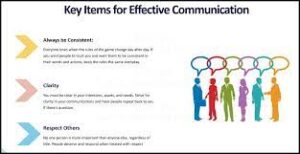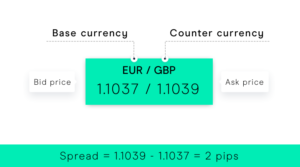Pascal Soriot, the chief executive of pharmaceutical giant AstraZeneca, has defended his company’s transparency amid criticism it has not been forthcoming enough about safety concerns that led to a pause in testing its COVID-19 vaccine.
“We all want to be as transparent as possible honestly, but the reality is we need to protect not only patient privacy but the integrity of the study,” Soriot said Thursday.
He said that revealing more information about the specific issue that had caused the testing to be temporarily paused around the world might inadvertently reveal the identity of the volunteer who developed a serious medical issue while taking part in the study. It also might “unblind” the study, allowing the doctors conducting it to know whether they were administering the vaccine or a placebo to certain groups, possibly invalidating the results, he said.
“Medicine should not be practiced for the media it should be practiced by experts,” Soriot said, speaking on a panel at a World Economic Forum virtual event on sustainable development.
The CEO said that while he understood why people wanted more information about why the trial had been paused and why scientists decided it was then safe to resume the testing, “at the end of the day, people have to trust” that regulators around the world are doing their jobs and will not approve a vaccine for use that isn’t safe.
Shares in AstraZeneca fell 1.5% on Thursday morning in London, underperforming the FTSE.
The company has been criticized for not revealing enough information about the exact nature of the safety concern, which led worldwide testing of its vaccine candidate to be paused on September 6, or about why an independent review board later concluded it was safe to resume testing.
It is known that testing was paused after one volunteer in the U.K. portion of the trials developed serious neurological symptoms. But the company did not proactively reveal this information to the general public and only confirmed the safety issue—as well as a previous temporary pause due to a similar safety concern—after news organizations broke the story.
On September 13, trials resumed in the U.K., Brazil, South Africa and India after an independent review board and British regulators determined there was no clear evidence the volunteer’s symptoms resulted from the vaccine.
But trials have not yet resumed in the U.S.
Soriot said that the U.S. Food and Drug Administration was still reviewing the data the company had submitted about the incident in the U.K. trial. AstraZeneca had been in the lead in the race to develop a Covid-19 vaccine for approval in the U.S. and Europe, but the long pause in trials in the U.S. may mean another company gets approval for a vaccine first. Both Pfizer and U.S. biotechnology company Moderna have vaccine candidates in late stage testing in the U.S., with Pfizer saying its inoculation may be ready for approval on an emergency basis by late October.
Soriot has said previously that AstraZeneca’s vaccine candidate “remained on track” despite the delays.
In his comments Thursday, Soriot seemed to lay the blame for any delay in restarting the U.S. study on AstraZeneca’s partners at the University of Oxford. Scientists at Oxford developed the vaccine and are in charge of conducting the clinical trials for it outside the U.S., including in Britain where the safety concerns arose. “Oxford is the sponsor of the study and they focused originally on providing all this [data] to the [U.K. Medicines and Healthcare products Regulatory Agency] and regulators in other countries where they are the sponsor,” he said. “We then provided all this data to the FDA and are waiting to hear their decision.”
Unusual steps
Soriot said that AstraZeneca is now talking to other pharmaceutical companies about agreeing on an industry-wide standard on the level of public disclosure that is appropriate for the Covid-19 vaccine trials, given how much global attention is focused on them.”We are trying to come up with a consensus about what we feel is reasonable to disclose which is typically not disclosed, but in this special set of circumstance where people want maximum transparency, what we can disclose,” he said.
He noted that AstraZeneca and several other pharmaceutical companies have already taken the unusual step of publishing the protocols for their vaccine trials while those studies are still underway. Normally, that information would not be made available to the general public until after testing had concluded—if at all.
Speaking at the same event, Paul Stoffels, vice chairman and chief scientific officer at Johnson & Johnson, reiterated that his company believes that its Covid-19 vaccine candidate, which the company said earlier this week is now entering late stage human testing in the U.S., might provide protection from just a single dose. This would give J&J’s vaccine an advantage over other leading candidates, which are all being tested with a two-dose protocol. A single dose makes a mass vaccination program simpler and less expensive.
Stoffels said that J&J had used a similar vaccine technique for other diseases, such as Zika virus, which gave the company a reasonable expectation that a single dose would provide sufficient immunity. “That experience told us if we develop it in a certain way and optimize, that we can get to a single shot,” he said. He said the single shot protocol had shown promising results in animal studies and early human testing too. But he also said that company will test a two-dose version just in case a single dose does not confer enough immunity.
Availability
Stoffels and Soriot both downplayed expectations a vaccine will be ready for widespread use this year. While Stoffles said it was possible J&J’s vaccine would be ready for emergency approval before January, the end of the first quarter of 2021 was more likely. When asked for his timeline, Soriot said “[Stoffels] described it very well.”
AstraZeneca’s and J&J’s vaccine candidates are based on similar technology. Both use a different virus, called an adenovirus, that has been genetically modified so that it can’t replicate and so that it prompts the body to make a protein found on the surface of the coronavirus. This protein then hopefully prompts an immune response that gives a vaccinated person protection against the coronavirus. This technique has several advantages over other vaccine technologies, one of which is that the vaccine does not need to be stored at sub-freezing temperatures, making it easier to use, particularly in the developing world where cold storage and supply chains are limited.
But there is a key difference between the two vaccines. J&J is using a human adenovirus—one that is among the causes of the common cold—while AstraZeneca is using an adenovirus normally found in chimpanzees.
More coronavirus coverage from Fortune:
- Will the pandemic give us a Sputnik moment?
- Researchers find a “druggable pocket” in coronavirus that could lead to new antivirals
- When Bill Gates thinks we’ll have a COVID-19 vaccine—and why that won’t be the end of the pandemic
- The CEO of the Serum Institute of India on his company’s COVID-19 vaccine campaign
- How a company that makes COVID tests is keeping its own 50,000 employees safe




